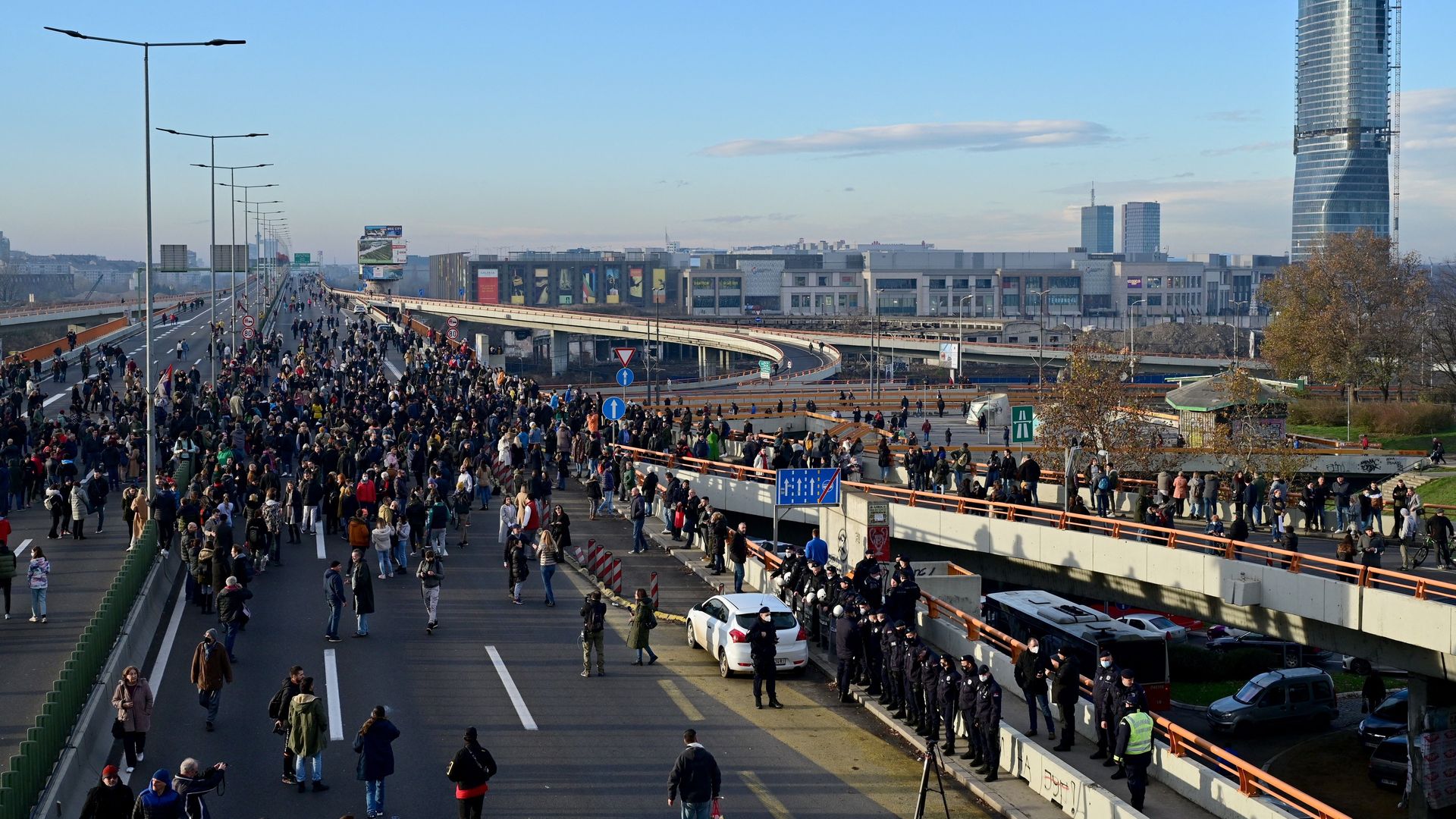Environmental protests rock Serbia
Add Axios as your preferred source to
see more of our stories on Google.

Hundreds of environmental demonstrators block the main highway in Belgrade, Serbia, on Nov. 27. Photo: Andrej Isakovic/AFP via Getty Images
Thousands of protesters across Serbia blocked roadways and bridges for the third consecutive weekend over the government's environmental policies, including a proposal for a new lithium mine that activists say would wreak havoc on the country's already extremely polluted environment.
Why it matters: These are some of the largest anti-government protests President Aleksandar Vučić's government has seen in years, and come ahead of April's general election.
Driving the news: The protests were initially prompted by two recently adopted laws that would have lowered the country's referendum threshold and allowed the state to more quickly acquire private property through expropriation, essentially paving the way for the expansion of foreign mining projects, according to Srđan Cvijić, a senior policy analyst at the Open Society Foundation.
- Those projects, protesters say, could include a new lithium mine run by Anglo-Australian company Rio Tinto in western Serbia.
- The protests come amid deepening environmental concerns in Serbia. A 2019 report from the Global Alliance for Health and Pollution found that Serbia has the highest number of deaths from pollution in Europe, and ranks ninth in the world.
Vučić last week agreed to withdraw and amend the controversial laws.
- "We have to see if we want that mine or not, and there should be a public debate about it," Vučić said in a national address. "I want to calm people down and tell them that we are on your side and we will not make any decisions without you."
Yes, but: The government's decision to withdraw the laws is likely "a reaction to the declining support for the ruling party ahead of the elections in the spring next year," Cvijić told Axios.
- "It is possible that the government will delay the adoption of the said law until the April elections are over to avoid paying the price of the social mobilization," he added.
- That reality has continued to galvanize protesters, Cvijić noted.
Between the lines: While Serbia is no stranger to mass protests, the latest wave of demonstrations is unique in how it has united a wide spectrum of opposition and citizen groups, analysts and observers say.
- "This is a big difference and this is why the regime feels threatened," Cvijić said.
- Bojan Simišić, from the group Eko Straža, which has helped organize protests, told local media last month that wide-ranging organizations "are in solidarity. Ecological groups have united. These are not different protests."
- Activist Savo Manojlović echoed Straža, tweeting, "Protests for all. Leftists bothered by right-wingers can put up a blockade at a different location. ... Divide yourselves later."
What's next: It's unclear how long the protests will continue. While this past weekend's rallies were smaller than the previous demonstrations, groups have vowed to continue to put pressure on the government and demand guarantees that the lithium mine project will not move forward.
- “There will be no peace until exploitation of lithium is banned and Rio Tinto sent away from Serbia,” Aleksandar Jovanovic, one of the organizers, told AP on Saturday.
